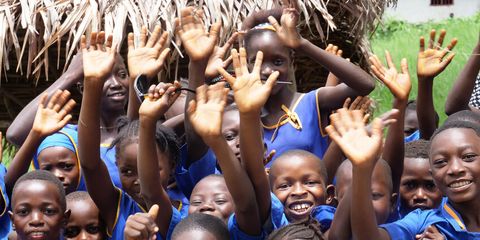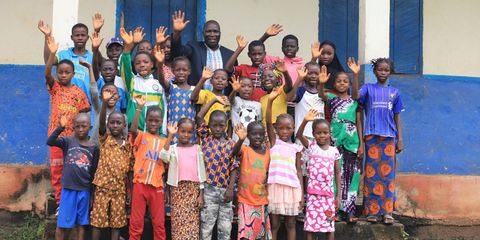From school leavers to star teachers
Eunice, Kumba, and 200 other young women have been catching up on the learning they missed and have become certified as schoolteachers with real-life classroom experience.
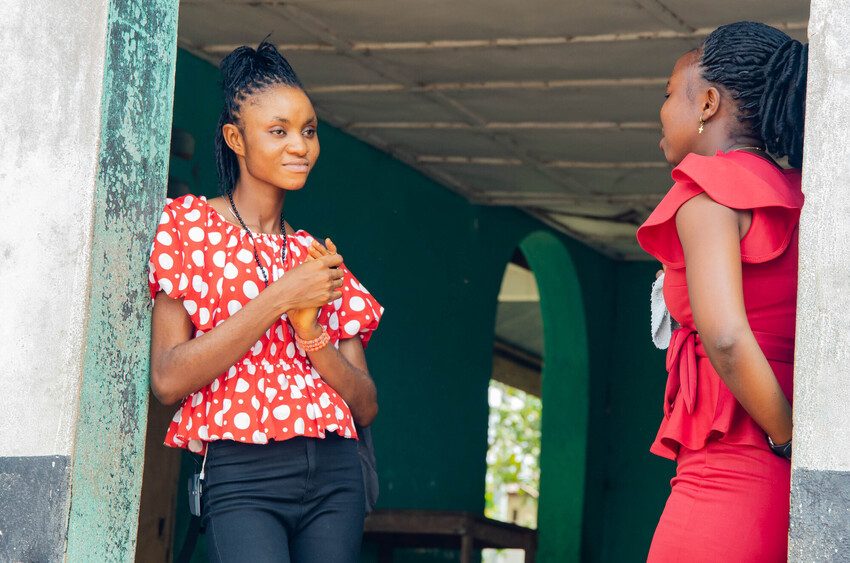
When Eunice left school, she was living out a story that’s common for young women in Kailahun, Sierra Leone, though it didn’t feel that way to her. “When you become a [school] dropout, you feel very much sad,” she says. “You feel isolated.”
Eunice is one of five children in a family she describes as poor”. She left school when her mother died in 2019, leaving her as the primary earner for her family. She became a mother herself when she was 18 years old.
In rural Sierra Leone, 75% of girls don’t continue their education after primary school. None of Eunice’s siblings went to school. Eunice’s experience was the norm.
Which makes what happened next all the more unusual.
Pursuing education despite many responsibilities
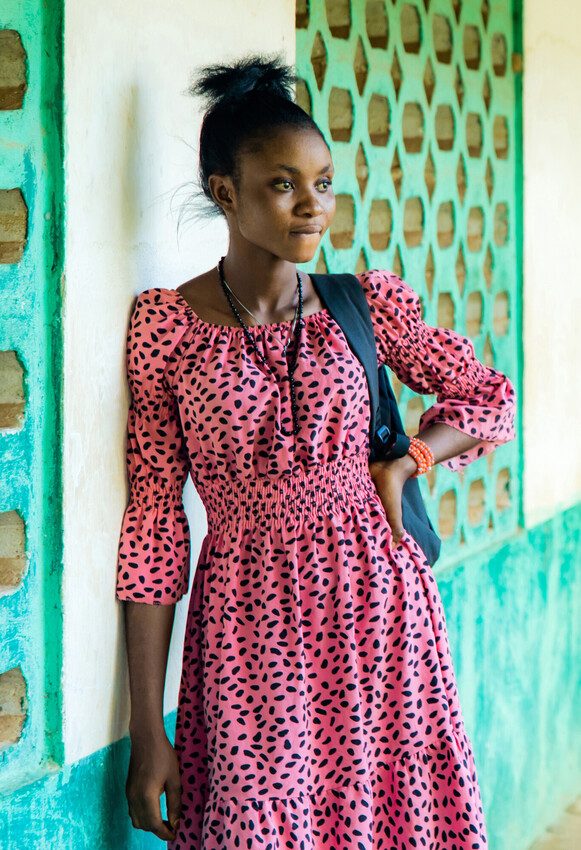
In 2021, Eunice was invited to enrol in a four-year Plan International programme that supports out-of-school young women to become teachers. There, she met Kumba, another young single mother at a similar crossroads. Kumba had dropped out of school when her mother fell ill and hadn’t found a way back to the classroom until the programme offered an alternative.
Eunice, Kumba, and 200 other young women in their cohort had the chance to catch up on the learning they’d missed and get certified as schoolteachers with real-life classroom experience. They were supported with tutors, mentorship, stipends and childcare to help them complete the program. They worked hard to pursue their certification via distance learning while juggling their other responsibilities.
The programme offered its participants a path to opportunity most women don’t encounter in rural Sierra Leone.
But not everybody thought it was a good idea.
Challenging expectations and social norms
“A lot of my friends in the programme had challenges with their husbands at first,” says Eunice. “The men believed that if their wives were educated, it would create competition and marital problems at home.”
“A lot of my friends in the programme had challenges with their husbands at first,” says Eunice. “The men believed that if their wives were educated, it would create competition and marital problems at home.”
Eunice
By joining the program, Kumba, Eunice, and the other participants were challenging strongly held beliefs about a woman’s place. “People say that a woman’s education ends in the kitchen,” shares Kumba, adding, “I totally disagree with them all.”
Though it takes courage to persevere in the face of other people’s doubts, the payoff was worth it, not just for Kumba and Eunice but for the girls they teach.
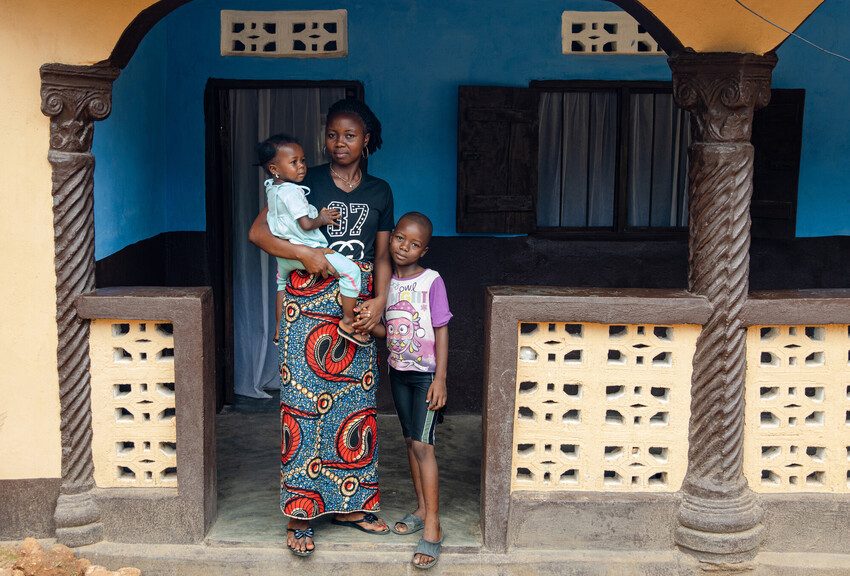
“Some people don’t believe in female education,” adds Eunice, “but we are trying our best to convince them that it’s important. Having more female teachers shows that women can do everything.”
Only 28% of teachers in Sierra Leone are female yet it’s been shown that when girls have female teachers they are more likely to attend and excel with their studies. They’re also more likely to bring forward their concerns and get the support they need. “Sometimes they feel more comfortable talking to me about the issues they are experiencing than even to their parents,” Eunice says.
Female teachers bring important lessons beyond the classroom
“We have to keep talking to the men who are jealous of us,” Kumba says. “We can show them that when a woman is empowered, she brings the benefits home with her.”
Kumba reports that these conversations are making a difference – over time, she’s seeing negative attitudes change as men become more supportive of the women in the programme. She’s also seen a change in her role in her community. “Before, women were not considered when it comes to decision-making,” she says. Now, when people are trying to make decisions, they often seek her out to join the discussion.
Eunice, too, has noticed that her friends come to her for advice and are keen to learn from her experiences. She feels like a changed person from when she dropped out of school. “When you can do something on your own for the future, you feel proud,” she says. “And when a woman is educated, a whole nation can be educated.”
